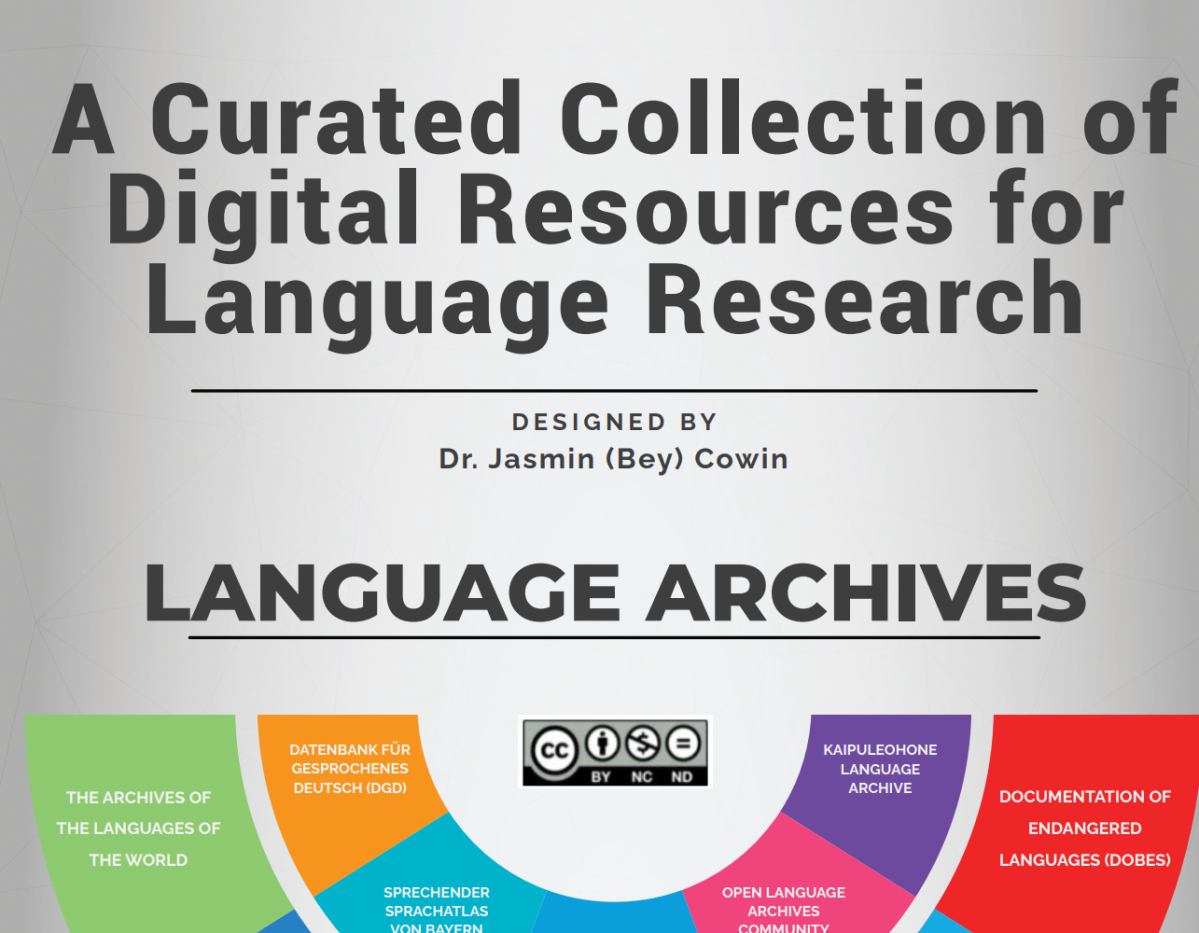This infographic strives to synthesize and clarify a collection of digital resources designed for linguistic research. It brings together a range of tools and language archives with a focus on enhancing productivity and insight into academic research on languages. By compiling these resources in one place, my goal is to make it easier for linguists, computational linguists, cognitive scientists, students, language teachers and researchers, and others exploring language to find and utilize the assets that will be most valuable for their work.
Overall, my infographic intends to showcase the digital resources that can empower investigations into linguistics and offer shortcuts for discovering and leveraging such freely available assets. By outlining some of the available tools and materials, I aim to promote more efficient, comprehensive, and insightful research practices among scholars studying language from various perspectives and with diverse objectives. Whether looking to find real-world examples of syntax patterns, or uncover endangered languages, this guide endeavors to point researchers towards the most relevant and useful digital assets for their work.

Author: drcowinj
Dr. Jasmin (Bey) Cowin, Associate Professor at Touro University, Fulbright Scholar, SIT Graduate, past Education Policy Fellow (EPFP™) at Columbia University, Teachers College. At the heart of my professional journey is a commitment to transformative education, grounded in integrating concepts like Lynda Miller's philosophy of abundance, which counters Ruby Payne’s notion of a Culture of Poverty (2005). This philosophy emphasizes viewing experiences as assets filled with positivity and optimism, particularly valuable in an often dystopian-seeming world. My endeavors align closely with the United Nations Sustainable Development Goal 4: Quality Education, a goal deeply intertwined with both my personal and organizational objectives. This is evident in my work with initiatives such as Computers for Schools Burundi (CfSB), TESOL “Train the Trainer” programs in Yemen and Morocco, and my scholarly contributions including an article in the Journal of Higher Education Theory and Practice (JHETP) and various workshops focused on supporting displaced learners.
As an educator in the Fourth Industrial Revolution era, I recognize our crucial role in preparing the future workforce. To equip students with necessary digital literacy and technological skills, we educators must first master these areas. The technologies defining the 21st-century workforce could lead to new forms of exploitation if access is not globally democratized. By incorporating 4IR innovations in education, we shape students’ worldviews from an early age, preparing them for VUCA (Volatile, Uncertain, Complex, Ambiguous) environments and ensuring they become a skilled, adaptable workforce. In conclusion, my commitment extends beyond transactional interactions, focusing instead on utilizing my skills and privileges to make a positive, enduring impact on the world.
View all posts by drcowinj

